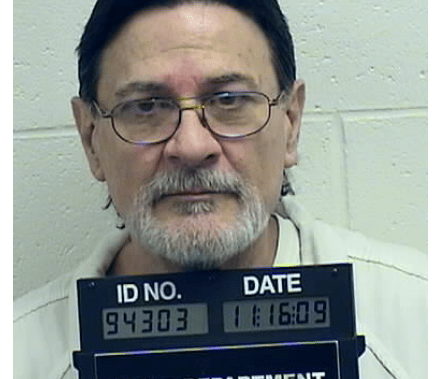RCMP in Alberta say more tips have come in about serial killer Gary Allen Srery and possible links to B.C. and more victims.
“So far to date, we’ve received well over 50 specific tips related to Srery and his possible involvement not only in Alberta but British Columbia and a few stemming from the United States as well,” Travis McKenzie, head of the Alberta RCMP historical homicide unit, told Global News on Tuesday.
He said the team is “quite optimistic” that with this work they will be able to solve at least one or two unsolved homicides.
In May, Alberta RCMP announced a huge break in cold cases, saying Srery had savagely assaulted and killed four young women in Calgary – Eva Dvorak, Patricia McQueen, Melissa Rehorek and Barbara MacLean.
At a news conference in Edmonton, police said Eva Dvorak, 14, Patricia McQueen, 14, Melissa Rehorek, 20, and Barbara MacLean, 19, were all killed in the 1970s by Gary Allen Srery.
Shane Struck/Global News
 The cases went back nearly 50 years. Srery, who died in a U.S. prison in 2011, lived in B.C. for 20 years.
The cases went back nearly 50 years. Srery, who died in a U.S. prison in 2011, lived in B.C. for 20 years.
“We are taking a look at his whereabouts and locations, throughout Alberta in the mid to late 1970s, as well as British Columbia, the Lower Mainland and Sunshine Coast,” McKenzie said.
“What we’re doing with the tips is we’re taking them, we’re analyzing them with the information we know and that we don’t know. And in the cases where they’re outside of the province of Alberta, we’re speaking with the local detachments or different agencies that would have jurisdiction in those areas.”

Srery had an extensive criminal record in the U.S. involving sex crimes against young women.
The email you need for the day’s
top news stories from Canada and around the world.
Around 1974 he fled the U.S. after posting bail for a rape charge and then entered Canada illegally.
He’s known to have been in the Calgary area from 1975 to 1979 before spending more than two decades in B.C. on the Sunshine Coast and in the Fraser Valley.
In 1998, he was arrested for a violent assault in New Westminster and deported back to the U.S. in 2003 after serving a five-year sentence.
DNA was used to solve the four murder cases in Calgary after evidence found on the victims was matched to Srery.
McKenzie said being able to bring answers to families, even decades later, is one of the most rewarding aspects of his team’s work.
“It’s incredibly rewarding and it just gives us that energy we need to keep moving forward and, you know, persevering with all these other unsolved homicides,” he said.
McKenzie said he hasn’t come across another case like Srery’s that involved so many young, innocent victims dating back to the 1970s.
“We can’t bring him to justice because he’s deceased, but it’s certainly opened our eyes to different ways that offenders would have often behaved in the 1970s and ’80s and even up to the ’90s,” he added.
McKenzie said they are still looking for tips from the public, information about Srery’s locations, his movements after he left Alberta, in Vancouver, the Fraser Valley, and the Sunshine Coast from 1979 onwards.
“We know that it’s a big ask from people of the community. A lot of his colleagues and associates would be in their 70s and 80s now,” he said.
“But once again, if we could, you know, try and find these people and, you know, who would have known him or would have worked with him.
“We’re still asking for them to come forward and share their story with us, so we can still put those pieces of the puzzle of where exactly he was through the ’80s and ’90s in Canada.”
© 2024 Global News, a division of Corus Entertainment Inc.






